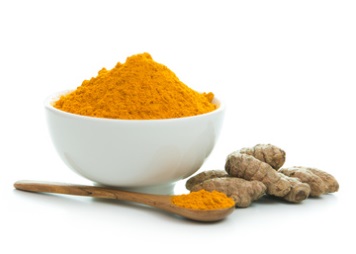
Many people are interested in a turmeric psoriasis treatment these days. Turmeric is an herb often used in cooking, especially in foods like curries. It has anti-inflammatory and antioxidant properties and is used by many in the treatment of inflammatory conditions such as psoriasis, eczema, osteoarthritis, rheumatoid arthritis, and uveitis (an inflammation of the iris of the eye). In fact, some research shows it works as well as ibuprofen at relieving knee pain caused by osteoarthritis. It’s readily available and affordable, too.
How Does Turmeric For Psoriasis Work?
The active ingredient in turmeric is called curcumin. Curcumin is an antioxidant, meaning it helps prevent damage to certain types of cells. It also reduces the amounts of two enzymes produced in the body that cause inflammation. In addition, it helps prevent platelets in the blood from forming clots.
It’s the anti-inflammatory action of turmeric that is most useful for people with psoriasis. While further research is needed, turmeric may relieve the redness, swelling, inflammation, and discomfort associated with the condition.
Using Turmeric For Psoriasis
Turmeric is usually taken internally, either by mixing it liberally in your food or by taking it in capsule form. Taking it in capsule form makes it easier to take a good-sized dose and to know how much you’re getting. Unfortunately, there has not been enough research done to determine exactly what dose of turmeric might be effective for the treatment of psoriasis.
Sometimes turmeric is mixed with water to form a paste or is added to ointments meant to be applied topically, especially when used to treat skin disorders. Taking it in capsule form is easier for most people, however.
Who Shouldn’t Use Turmeric For Psoriasis
Since turmeric affects blood clotting, people taking blood-thinning medications like Plavix, Lovenox, heparin, or warfarin (Coumadin) probably shouldn’t use turmeric. Medications like aspirin, ibuprofen (Advil, Motrin), and naproxen (Anaprox, Naprosyn) should probably be avoided if you take turmeric, as well. Definitely talk to your doctor before taking turmeric if you use any of these medications.
WebMD recommends against using turmeric during pregnancy, as it might lead to premature labor. WebMD also recommends against using turmeric if you have gallstones or a bile duct obstruction, as it might make symptoms worse.
Because of its anti-clotting properties, stop taking turmeric two weeks before any scheduled surgical procedures. If you must have emergency surgery for any reason, make sure to let the surgeon know if you’ve been taking turmeric.
Talk to your doctor or pharmacist if you have questions about whether or not turmeric is safe for you.
Our Preferred Natural Remedy For Psoriasis
While turmeric is a useful natural remedy for psoriasis for some people, it’s not our favorite. There are some people that cannot safely take it and there is some question about the appropriate dose to use for the treatment of psoriasis. In addition, while it does address some of the symptoms, like redness, swelling, and inflammation, and it does relieve some pain associated with the condition, it doesn’t address the scaly skin or the intense itching that plagues some people with psoriasis. We wanted a natural remedy that addressed all those issues and we found one.
Terrasil Psoriasis Therapy Max is an ointment that contains salicylic acid to reduce the redness, swelling, and inflammation associated with psoriasis, volcanic clay to soothe sore and irritated skin, peppermint oil to relieve itching, jojoba seed oil to soften skin and remove scales, and other natural ingredients that nourish skin and help it return to health. It’s generally considered safe for most people, although of course, you should check with your doctor if you have any questions or concerns. To learn more about our favorite natural remedy for psoriasis, just follow this link to the Terrasil Website.
WebMD: Turmeric Overview
